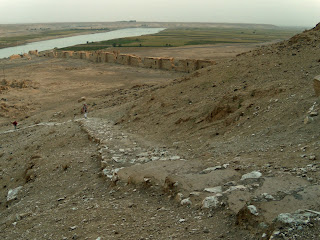In order to
secure museum collections in the Middle-East threatened by the IS, the idea
arose to create a digital library of books, manuscripts, and other written
material. This project was developed by the joint collaboration of the existing
Council on Library and Information Resources (CLIR) and the Antiquities
Coalition under the name DLME, the abbreviation for Digital Library of the Middle East .
The goal of DLME
is to create an online collection of all sorts of materials relating to the
civilizations of the Middle East . Its
inventory will show a worldwide collection of artifacts with detailed
descriptions and pictures to provide a better understanding for our cultural
heritage. The featured objects would show ownership and legal status, which
would help to determine whether artifacts were acquired legally or not. The
project will extend to include undocumented or uncatalogued items, and as such
help in fighting the illicit art trade.
As the crisis in the Middle
East is not to end soon, the construction of this digital library
is acute in order to inhibit looting and to keep track of the cultural objects
in order to help to safeguard what is called the world’s greatest cultural repositories.
The basic idea is that we must know what is there before we can even consider
protecting this heritage.

No comments:
Post a Comment